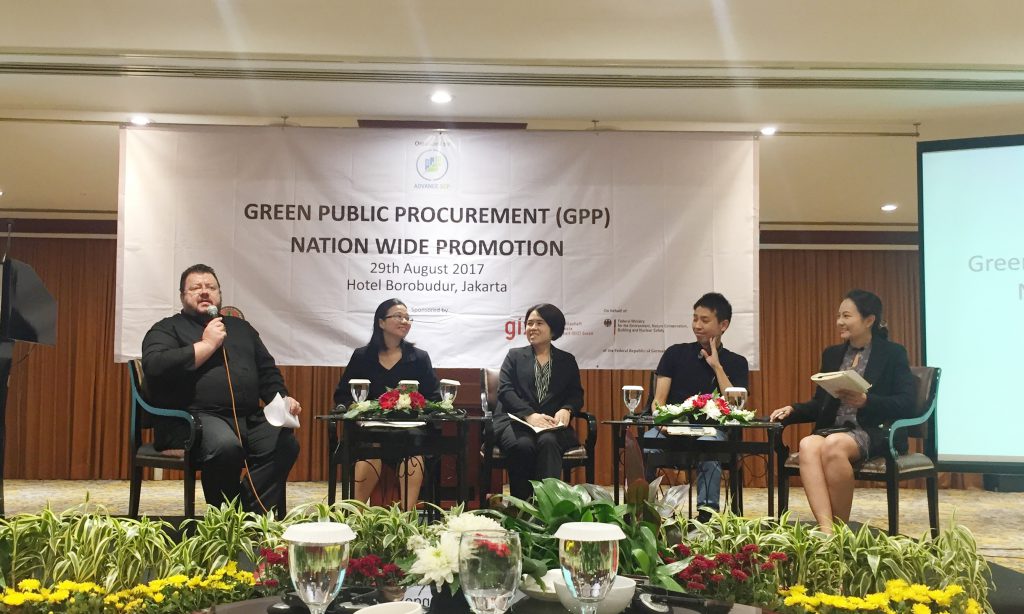The Ministry of Environment and Forestry, Indonesia used the occasions of the “GPP Nationwide Promotion” conference on 29 August 2017 to introduce Green Public Procurement regulations covering 3 product lists, namely copy paper, lamps and green hotels. The conference was organized by the Ministry in collaboration with the Advanced SCP project. The newly launched GPP regulations are currently being implemented in government agencies and adoption by the private sector is being encouraged.
Mr. Hiroyuki Kobayashi (Japan Environment Association – Eco Mark Office), Ms. Jarinporn Tippamongkol (Pollution Control Department, Ministry of Natural Resources and Environment Thailand), Dr. Kanyanee Seangkietiyuth (Thailand Environment Institute), and Mr. Thomas Lehmann (Advance SCP Project, GIZ Thailand) led the panel discussion at the conference on the subject “Linkage between Green Public Procurement and Eco-Labelling in Japan and Thailand”.
Representing the Secretary General of the Ministry of Environment and Forestry, Senior Advisor to the Minister of Inter-Institutional Relations, Mr. Ilyas Asaad said: “The implementation of the Government Procurement of Goods and Services policy is now reinforced by the President’s Regulation number 59 of 2017 in order to achieve Sustainable Development in Indonesia. Let us strengthen this collaboration with the commitment and endorsement from the President of Indonesia and with the support of all state officials, business and industry players, as well as the community”.
The project “Advancing and Measuring Sustainable Consumption and Production for a Low-Carbon Economy in Middle-Income and Newly Industrialized Countries (Advance SCP)” aims at increased awareness, institutional support and technical capacities to develop and strengthen sustainability information policies and tools for sustainable and low carbon consumption and production patterns. It will further support the creation of a market for climate-friendly products which will lead to less pollution of the environment. Regional and global trade and investments are promoted through the harmonization of eco-labels.
